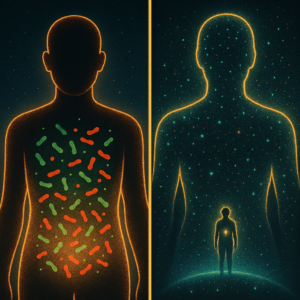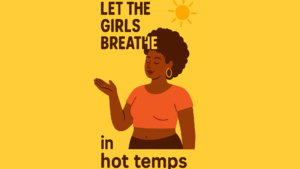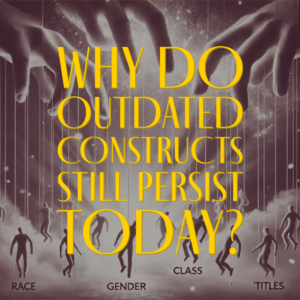If we go back to earlier times ⏳, long before laws were formed 📝, men controlled not just relationships but sex as well. Men could not be charged with taking sex from a wife because it was considered their right. Marriage, in many ways, wasn’t about love or partnership but about ownership 🏠. A husband owned his wife, and marriage was designed to secure power and control over her body, labor, and even her identity. This idea—that women were essentially property—was deeply embedded in society and lasted for centuries.
Even now, many people don’t realize how much these historical dynamics still shape modern relationships 🧠. Society has never really focused on the effects of testosterone 💉 and the biological makeup of men. The combination of male instinct, historical patriarchy 👑, and the hunter-gatherer mindset has rarely been discussed openly. Most women don’t fully understand what they’re dealing with because they were never trained or taught to recognize these deeper, primal dynamics.
On the flip side, men haven’t been given the tools 🛠️ to understand themselves either. Many men still operate on instinct, paired with the outdated idea that they should be in control of women and children, just like in the past. This creates ongoing frustration because the world is changing 🌍. Men can’t get away with the raw tendencies that were once accepted, but they haven’t been given the awareness or support to fully adjust to these changes.
🤔 Why Women Have Masculine Energy 💼
Masculine energy, as described by men in the manosphere, refers to women taking on roles and responsibilities that are often seen as “male duties,” like being the breadwinner, making decisions, and leading their families. The manosphere often promotes the idea that women who present this masculine energy are not attractive ❌, suggesting that men are only drawn to women who exhibit feminine traits like submission and nurturing. But let’s think about why women, especially single mothers 👩🏽🦱👩🏿🦰👩🏻🦳, might have this energy.
For many single mothers 👩👧👦, there’s no choice. They have to step up and provide for their children, run their households 🏠, and make tough decisions because there isn’t a man around to do it with them. They’re not trying to take men’s roles; they’re simply doing what they have to do to survive and protect their families.
This shift isn’t about women wanting to be men 🚺➡️🚹. It’s about survival and strength 💪 in a world where they’ve often been left to handle everything alone.
💼 The Myth of High-Value Men 💰
Men in the manosphere often focus on the idea of “high-value men”—men who are successful, wealthy, and at the top of society 📈. They believe that only about 1% to 3% of men are in this category 🏅, and the rest are considered “average.” According to them, women who are “average” shouldn’t expect to get one of these top men because they’re aiming too high. They often say that women have “female privilege” 💁🏽♀️💁🏻♀️, meaning they believe they deserve the best just because they’re women, even if they don’t meet the same high standards.
But here’s where things get tricky 🤨. Many of these high-value men didn’t get there by working harder than everyone else. Some inherited their wealth 💼, some got there through family connections (nepotism) 👨👩👦, and others got lucky 🍀. The manosphere ignores that part. So when women are told they don’t deserve these men because they’re “average,” it’s like telling someone they’re not good enough for a prize based on something superficial, like money or looks 💸👀.
But what if relationships were less about being a “prize” 🎁 and more about finding real partnership, support, and love 💖?
🎤 The Jay Z and Beyoncé Example 👑
One famous example of this power struggle is when Jay Z, one of the most successful men in the world 🌍, cheated on Beyoncé, one of the most beautiful and talented women 🎤. The world was shocked 😮 because, to many people, Beyoncé seemed like the “perfect woman”—so why would he cheat? Some people believe that it was a way for Jay Z to “put her in her place” because she was rising so high in her own success and power 🚀.
This idea ties back to the historical dynamics we’ve talked about. In the past, men controlled both relationships and sex, and society supported this control 🛑. While times have changed ⏳, some men may still feel the need to assert their dominance, especially when their partner is highly successful 📊👠.
⚖️ Classism and Relationships 💵
Men in the manosphere also talk a lot about class and how only the top 1% of men are truly valuable 💰. But let’s break that down. Classism is the idea that people’s worth is determined by their social or economic status 🏦, meaning how much money or power they have. The manosphere makes it seem like only wealthy, high-status men deserve to have the best women 👸🏿👸🏻, while “average” people should settle for less.
But this way of thinking is just a smoke screen 🌫️, a distraction from what’s really going on. It keeps the focus on things like money and looks 💸👁️, rather than addressing the deeper issues of why men might struggle in relationships—like the fact that we don’t talk enough about men’s emotional, mental, and physical health 💔🧠. Society has spent years studying women’s hormonal changes, emotional struggles, and physical needs 🧬. But men? Not so much.
🧠 What’s Missing: Support for Men 🤷♂️
Men, just like women, face emotional struggles, hormonal changes, and mental health issues 🧠💔, but there hasn’t been nearly as much focus on studying these things 🔬. Men are often taught to “tough it out” and not show weakness 💪. But that can lead to problems in relationships, where they don’t know how to express their emotions or handle the pressure they feel 🤐.
Some men have admitted that they chase success not because they love their work 🏃♂️💼, but because they think it will get them a “supermodel” girlfriend or wife 👗👩🏽🦱. But even when they achieve that, they might still cheat or feel unfulfilled 💔, like we saw with Jay Z. Why? Because they’re still dealing with deeper issues—issues that society isn’t helping them face 🧠🧩.
📱 The Influence of Social Media 📸
In today’s world 🌍, social media plays a huge role in shaping how people see themselves and each other 👁️. Social media is a form of marketing 📊, where people display themselves as products 🎁, showing off their best sides to attract attention and admiration 💃🏽🕺🏻. In this environment, both men and women feel the pressure to “advertise” themselves as being high-value 💼, leading to a cycle where appearance, status, and success are prioritized over authenticity and genuine connection 🤝💖.
This makes it even harder to form real partnerships 🤝 because everyone is focused on presenting the “perfect” version of themselves, rather than building relationships based on mutual respect, understanding, and support 👫🏽.
💡 Conclusion: Moving Beyond the Surface 🌱
The conversation about high-value men and women often misses the bigger picture. It’s not just about income 💵, looks 👁️, or status 🎖️. It’s about understanding the historical power dynamics, why women are stepping up in ways they didn’t before 💪, and how men need support to deal with their own struggles 🧠. Relationships should be about mutual respect 🤝, partnership, and growth 🌱, not about chasing after status or prizes 🏆.
Until we start focusing on the real issues—emotional health, power dynamics, and societal pressures—we’ll keep having these same conversations 🔄. It’s time to dig deeper 🕵🏽♀️, for both men and women, to create relationships that are about more than just who’s “high value” on paper 📄.








